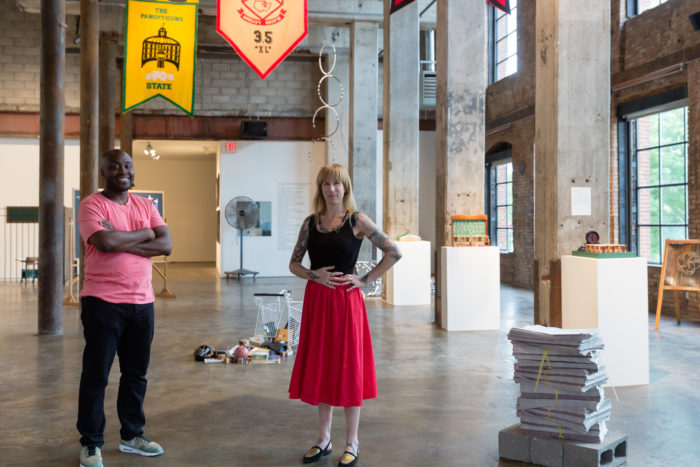
If there’s anything about history we have come to know it’s that in order to not repeat the past, we must pay close attention to it. Race and Revolution: Still Separate – Still Unequal, a group show held at Smack Mellon in Brooklyn’s historic neighborhood of Dumbo, seeks to question the alleged end of segregation in America’s public school system.
Once upon a time and not so long ago the Supreme Court came to the verdict that, after the court case Brown V. Board of Education, segregation in public schools was unconstitutional. Contemporary racism has since been viewed as a beast long ago slain at the close of the Civil Rights movement during the 1950s and 1960s. Race and Revolution employs familiar physical facets of school life such as desks, books, and chalkboards to demand the viewer’s consideration on whether or not anything has actually changed in America’s public school system post-civil rights.
The incipience of Black Lives Matter, a reactionary movement to police violence against people of color, in combination with sobering results of the recent Presidential election, marked a time of resurfacing conversation surrounding issues of race (also gender and sexuality).
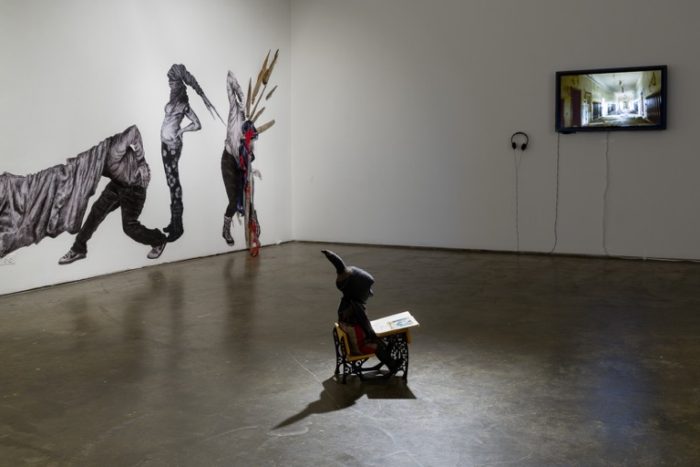
Race and Revolution hopes to call attention to the developing discussion of economic and racial inequality that people of color face. As the second installment of an on-going rhetoric, the show draws the viewer’s eye to a physical representation and commentary on recent reports released that disclose segregation has, in fact, inclined since its “end” in the mid-20th century.
The public education system in question runs a little like this: schools and their corresponding degree of quality is directly related to how much money a family makes. Because quality education is based on wealth, some children will have access to better education than others.
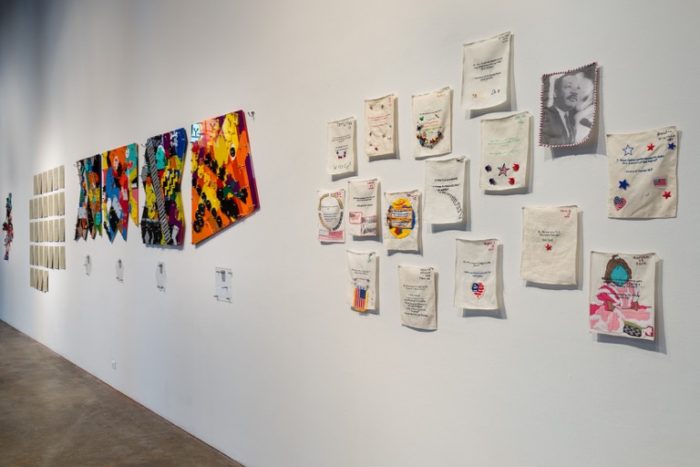
The show was curated by Kathryn Fuller, a former educator herself of high school-level English, and Larry Ossei-Mensah, a Ghanaian-American independent curator and cultural critic. The two combined their personal knowledge of education and passion for social justice to curate a show that exemplifies the climate of American public education.
Pieces in the show range from representational, miniature-model classrooms, letters from an adjunct professor (an already disadvantageous position) of color being treated with less respect, more work and longer hours than their white counterparts, as well as video and three-dimensional installation pieces.
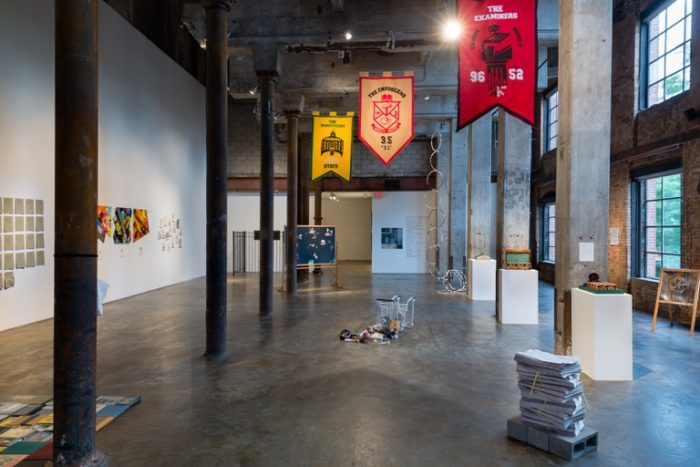
Upon entering the gallery, three felt flags hang in the middle of the space between large rows of pillars. The flags seem to bear school names and colors but pay close attention to the writing and pictures featured; they represent systems that mean to control students. Each flag was entitled, by the artist Olalekan Jeyifous, as The Panopticons, The Examiners, and The Enforcers, respectively. Each flag features corresponding depictions all representing the controlled and standardized nature of American public education that to seems to seek enslavement, not freedom as it totes.
Beneath the flags on the right side of the gallery among a number of other pieces lay a series of representational works, by artist Carina D. Maye, that feature the guise of classic classroom settings but after close consideration the insidious nature of standardized testing and literacy testing are revealed. Whether through slight or total disruption of the scene, Maye makes a point to show the fault in our education system.
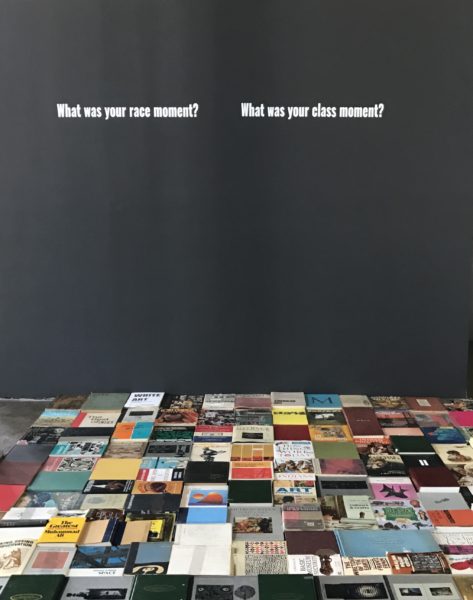
Within the exhibit an interactive piece is featured, entitled Unfinished Business: “What You Think Matters Too” Part III by jc lenochan that seeks to show, not tell, the viewer something insightful about race and class by writing in bold, white letters onto a chalkboard wall above a floor tiled with books that asks attendees to disclose moments in their own life where their class and race became most evident to them.
The moments recorded on the wall by viewers are striking, wherein not only is the piece itself a nod to chalkboards, a tool used to teach, and requires that the writers step on the books in order to record their moment. These become a vehicle for the artist to twofold teach the audience something about themselves and reveal issues with the current educational system that has been normalized.
Toward the close of the show, Kayla Muldrow explores notions of freedom through three original pieces in a live poetical performance. The pieces draw from her personal experience with inner-city public education and commentate on that school system in specific.
The first piece paints a picture of the many differences between private schools and public schools through the perspective of someone who went to public school and envied the opportunity to have access to better education.
Her second piece looks at freedom in relationship to class and color, specifically asking the viewers, “How do you free a people? By enslaving them to another master? The money master?”
The final piece is most similar to a love poem for freedom, analyzing the ways in which she believes love can be freedom.
The show will remain until August 6th at Smack Mellon Gallery, adjacent to the Brooklyn Bridge.
Artists:
Mitsuko Brooks, Dennis Redmoon Darkeem, Damien Davis, Dominique Duroseau,
Uraline Setpembre Hager, L. Kasimu Harris, Olalekan Jeyifous, Mona Kamal,
jc lenochan, Karen Lomax, Carina Maye, Kayla Muldrow, Shervone Neckles,
Iviva Olenick, Nicole Soto-Rodríguez, Aram Han Sifuentes, Marvin Toure,
and Antoine Williams
– Angela Groom
Photographs provided by Smack Mellon








